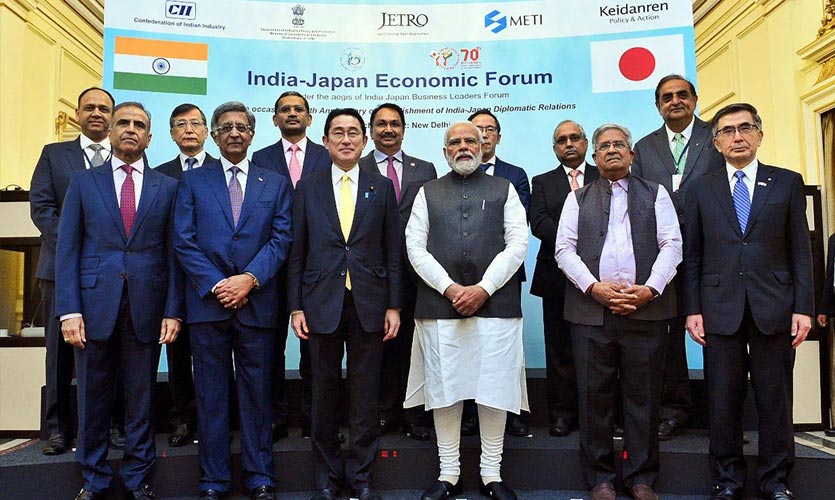According to reports, the Japanese government is still hopeful that India will consider rejoining the Regional Comprehensive Economic Partnership (RCEP) that it left in 2019. A senior official has said that India’s collaboration with Japan and the other countries may be affected if India sticks to it’s decision. The official also noted that the RCEP language on “rules of origin” may make it more difficult for products containing Indian components to be sold freely between the countries that make up the 15-member grouping.
In an interaction with journalists during Japanese Prime Minister Fumio Kishida’s visit, Japanese Cabinet Secretary for Public Affairs Noriyuki Shikata said that the RCEP would benefit the Indian economy with improved supply chains, especially with ASEAN countries.
As a founding member, Shikata said that India would be treated exceptionally, and if it is willing to re-enter the RCEP, Japan would be happy to lead negotiations. He acknowledged that the Modi government has not shown any interest in rejoining the RCEP.
India and Japan signed a number of economic agreements during the annual summit meeting, focusing in particular on the northeast region of India. Additionally, the two leaders agreed that Japan should invest five trillion yen over the next five years, including loans, FDI, and assistance. However, the plans to collaborate with third countries, including using Indian components in products, could encounter higher tariffs and barriers. The RCEP, in particular, mandates a “Rule of Origin” certification requirement that would restrict free trade access to goods manufactured within RCEP countries, who have pledged to eliminate tariffs on 91 percent of their products.
“Because of the structure of the RCEP agreement, there is the issue of Rules of Origin certifications. If, for example, Japanese and Indian companies invest in Thailand or Vietnam and create a supply chain and the final product is exported to China, they could make use of RCEP provisions and put more conditions or tariffs on it,” said Shikata, explaining that the India-Japan collaborations could then be restricted to projects in India’s neighbourhood, for example, in Bangladesh. “So, if India comes on board, those kind of investments… cross-border investments could be facilitated,” he added.
The RCEP, the world’s largest trade deal, which includes China, Japan, South Korea, Australia, New Zealand, and 10 members of the Association of Southeast Asian Nations (ASEAN), was signed on January 1, 2019. About 30 percent of the world’s GDP and population is covered. The China-India free trade agreement began in 2012, but Indian Prime Minister Narendra Modi announced in 2019 that his government would be leaving after it could not resolve issues, mainly over concerns about the Chinese dumping and allowing free access for Indian services in the region. After the conclusion of the RCEP negotiations with India, Japan and Australia, two countries that have continued the trilateral trade dialogue they began during the RCEP negotiations, have said that they would welcome India back to the agreement if it decided to rejoin. This sentiment was accepted by the entire grouping.
Read more: Colombo Security Conclave: India, Allies Sort Roadmap To Address Maritime Challenges
The Modi government has set several Free Trade Agreement negotiations on fast track in the past few months after Commerce Minister Piyush Goyal vowed that India would not sign FTAs in a hurry or at the expense of Indian industry and exporters. The UAE agreement was finalised earlier this year and talks with Australia, Canada and the UK have accelerated. Despite this, Shikata reports that plans to review the FTA signed between Japan and India in 2011 have yet to move forward, and that the government has not indicated whether it will reconsider the decision to leave the RCEP.
Adding that it was a sovereign decision, Shikata said, “We will wait.” The door remains open and Japan sincerely wishes for India to return to the union.










